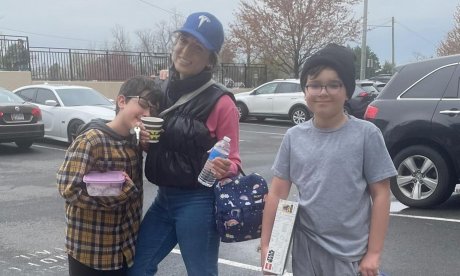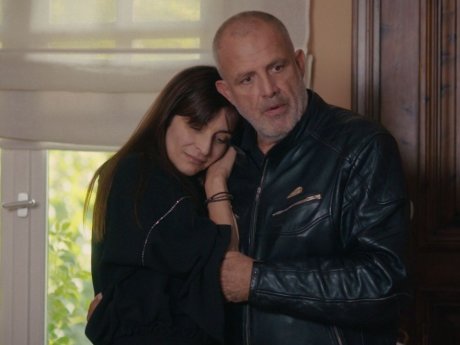'Social robot' designed to support autistic children developed at Macedonia University
A "cuddly" robot that uses Artificial Intelligence and has a "face" framed by soft and pillow-like petals has been developed by a lab at Macedonia University in northern Greece in order to provide support to autistic children.

A "cuddly" robot that uses Artificial Intelligence and has a "face" framed by soft and pillow-like petals has been developed by a lab at Macedonia University in northern Greece in order to provide support to autistic children.
Answering to the name Margarita (or Daisy in English and made in pastel shades of sky blue and purple, the robot's face can be smiling or serious, depending on the emotions it intends to convey. It was developed in the Lires Laboratory of the university's education and social policy department and can also converse, move its petals and is designed to assist teachers, therapists and doctors in approaching a child with autism and helping it develop social skills.
"It is a tool for professionals. The interaction is simpler and [they] can use Margarita as a "bridge" in order to complete an educational programme, an assessment or make a diagnosis," the head of the Lires lab, Prof. Nikos Fahantidis, told the ANA-MPA radio station.
He said that studies have shown that Margarita can help children learn to interpret emotional cues, with an improvement of social skills that persisted for some time after the intervention.
The robot had its debut at this year's Beyond 2023 exhibition at TIF-Helexpo and was the outcome of collaboration initiated in 2017 between Macedonia University and the Lires Laboratory with the companies Cactus SA and Revival Consulting Services SA.
Trending




















